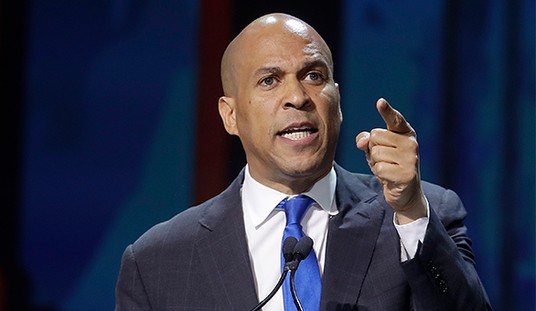Two years ago, President Obama signed into law ObamaCare, his signature piece of legislation. As a direct result of that law’s unpopularity, Congressional Democrats suffered devastating defeats in the midterm election of 2010, losing more than sixty seats in the House. It would be an understatement to say the President’s healthcare overhaul law is merely “unpopular.” According to several recent polls, Americans still overwhelmingly oppose ObamaCare by a two-to-one margin. Americans understand that not only is this the wrong solution to our healthcare needs and challenges, it is also an affront to freedom that makes our families’ health and country’s fiscal health more fragile.
The 2012 election should be an opportunity for Americans to elect a President committed to ObamaCare’s repeal and replacement with sound free-market competition. But that is where this 2012 election has an unusual aspect. The original architect of the Democrats’ unpopular healthcare law is himself also running for president on the GOP ticket. Mitt Romney, one of the candidates in the race for the GOP nomination, authored and championed his own version of ObamaCare less than six years ago.
Over the past two years, Americans have learned more about ObamaCare and about the true impact of this law. By the Democrats’ own stated objectives, the law has been an utter failure. Democrats in Congress and President Obama made several claims about ObamaCare; they promised Americans that the law would bend the healthcare cost downward. They also promised that it would be “budget neutral,” that it would achieve “universal coverage,” and that families would immediately see their health insurance costs decrease. On each and every account, the law has failed. Instead, public sector and private sector health care costs are rising. The Democrats’ “budget neutral” bill is, in reality, going to cost trillions of dollars more for American families, small businesses, and taxpayers. And rather than reducing families’ health insurance costs, most Americans have already seen their health insurance premiums rise. (And unions, businesses, and states alike are rushing to plead with the Obama Administration for waivers from the disastrous and partisan law.)
All of these side effects of ObamaCare were entirely foreseeable. Anyone who has studied Massachusetts under RomneyCare could have predicted each of these problems.
Mitt Romney has been on the defensive for the past several weeks, trying to explain to GOP primary voters how his government takeover of health care in Massachusetts was somehow different than ObamaCare. The task has proven incredibly difficult because the laws are, in numerous ways, identical. Romney’s challenge to draw distinctions has been made even more difficult now that White House senior advisor David Plouff last week called Mitt Romney the “godfather” of ObamaCare.
It’s worth noting that the White House knows just how unpopular the health care law is, and they’re looking to share the blame with someone else. After all, if Mitt Romney becomes the GOP nominee, the Obama Administration will have effectively neutralized the ObamaCare issue.
Mitt Romney, confronted by the reality that ObamaCare remains unpopular, has tried to manufacture distinctions between his healthcare law and the President’s. Unfortunately, all of the major flaws of ObamaCare can be found in RomneyCare.
There are several key objections that conservatives have about ObamaCare. And those objections equally apply to RomneyCare. For limited-government conservatives, one of the most offensive aspects of ObamaCare is the “individual mandate.” Conservatives. The National Federation of Businesses, and twenty-seven states rightly point out in their legal challenge considered this week by the Supreme Court that our government simply does not have the authority to require anyone to purchase something – whether it is health insurance or an American-made car, or anything else. The Constitution grants very specific and clearly defined powers to Congress. The authority to dictate particular purchases, thankfully, is not one of those powers.
But Mitt Romney’s views differ from those of most conservatives in this country. He does believe that government – both at the state and at the federal level – possesses the right to dictate to individuals what they must purchase. RomneyCare includes an individual mandate that functions exactly like ObamaCare’s individual mandate. And, beyond that, Mitt Romney penned an Op-Ed in 2009 for USA Today, in which he encouraged President Obama to adopt his state’s individual mandate. He boasted that the individual mandate is an effective way to encourage people to take responsibility for their own health care. He never expressed any concerns about what an abuse of power it is for the federal government to take that action. Classically for Mitt, his Op-Ed this past week in USA Today failed to mention that his Ted Kennedy embraced affront to freedom in Massachusetts punished businesses and families with fines that failed to comply with his big-government prescribed solution to the healthcare needs of citizens and pushed more people into taxpayer-financed Medicaid rolls.
While for both ObamaCare and RomneyCare, the central policy healthcare prescription is government coercion, rather than market-based incentives and choice, both ObamaCare and Romneycare failed to address the number one challenge for healthcare in America – rising costs. Not only did they not address it, they exacerbated it for families, businesses, and taxpayers. This is failed leadership. It should not surprise us that a policy prescription for such an important issue produced such outcomes when driven primarily by Governor Romney and Democrats in Massachusetts and entirely by Barack Obama and Democrats in partisan fashion in Washington, D.C. Massachusetts under Governor Romney had the highest healthcare premiums in the country and the growing burden of healthcare costs for our nation remains the primary long-term threat to our economic and fiscal future.
The 2012 election is about one central philosophic point: How big of a federal government do we want and is that where the solutions lie to the challenges that face America? Do we share the Obama-Romney view that government possesses vast and broad powers to dictate anything it pleases? Or do we prefer the view of our founding fathers and the authors of the Constitution? Do we embrace the status quo, which is good for the establishment, but not good for America? Or do we once again, correct our course, and embrace the inalienable rights endowed by our creator of life, liberty, and the pursuit of happiness, and the pursuit of a better America?
A primary reason that I chose to run this election cycle is that I believe ObamaCare is an assault on America’s system of limited government. I believe in American solutions to America’s challenges. This is how we renew our economy and our prosperity. Our founding fathers wisely designed a Constitution that protects individual liberty by limiting the scope and size of government. Pretending that one will only be big government at the state level and not at the federal level, if given the opportunity, doesn’t pass the commonsense test for most Americans. Unlike on Wall Street, in government, past performance does indicate future performance. It’s also the best thing that voters have to go on.
The authors of the Constitution correctly understood that there is an inverse relationship between the size of government and individual liberty. ObamaCare is a dramatic departure from our tradition of limited government and needs to be stopped. And, unfortunately, Mitt Romney does not offer a satisfying or credible alternative to the Democrats’ view of an ever-expansive government. Unlike Governor Romney, I have successfully led on free-market solutions for our healthcare needs and challenges like health savings accounts and choice and competition in Medicare. I have led the charge to end and reform entitlements, not to add to them.
President Obama would love for the Republican voters to neutralize this central issue in the 2012 debate about our vision for America and her future. Let’s embrace freedom instead.
Rick Santorum, a former representative and senator from Pennsylvania, is a candidate for the Republican nomination for president.













Join the conversation as a VIP Member